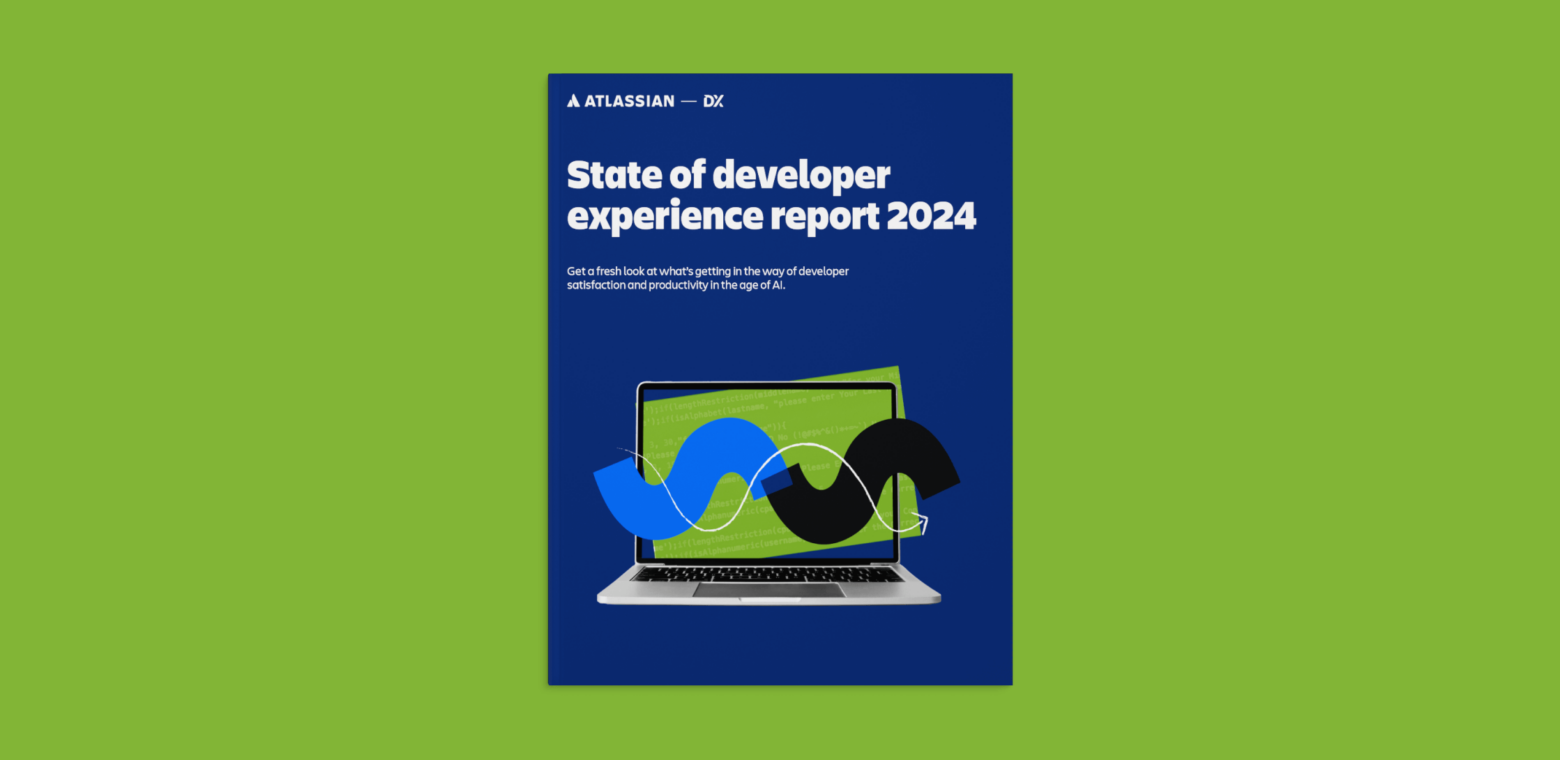New Atlassian research on developer experience highlights a major disconnect between developers and leaders
Only 44% of developers believe leaders are aware of the issues contributing to a poor developer experience.
Misalignment between engineers and their leaders is possibly the leading cause of a sub-optimal developer experience and, consequently, poor productivity.
Thankfully, we have moved on from a time when a positive developer experience meant buying a few ping-pong tables and ordering pizza on a Friday. Leaders understand that improving developer experience is about removing friction from the developer’s daily work and is a key input to productivity and retaining talent. But how closely do leadership attitudes match with what developers experience?
We partnered with DX, an engineering intelligence platform that leading companies use to measure and improve developer productivity, and Wakefield Research to survey over 2,100 developers and managers across a range of industries worldwide. This gave us a fresh look at what keeps work flowing smoothly vs. what introduces friction in software development teams.
Our research shows that 97% of developers are losing significant time to inefficiencies, and the majority think about leaving their jobs due to a poor developer experience. Engineers and leaders agree on the importance of a positive developer experience, but there is less alignment on what needs to be improved.
An example of the disconnect between engineers and their leaders is highlighted by the differing perspectives on AI. Leaders believe AI is the most effective way to improve productivity and developer satisfaction, while two out of three developers say they aren’t experiencing significant productivity gains from using AI tools yet. Despite the best intentions, disconnects like this create the potential for significant investment and effort to be spent on initiatives that don’t meaningfully improve the developer experience or productivity.
Here are some of our main takeaways from the research.
Developers are losing significant amounts of time to friction
Sixty-nine percent of developers are losing eight hours or more per week to inefficiencies. That’s 20% of their time. While this is shocking, perhaps more alarming is that less than half of them believe their leaders are aware of this issue. Similarly, less than half think their organization prioritizes developer experience.
How many working hours a week developers lose to inefficiencies:
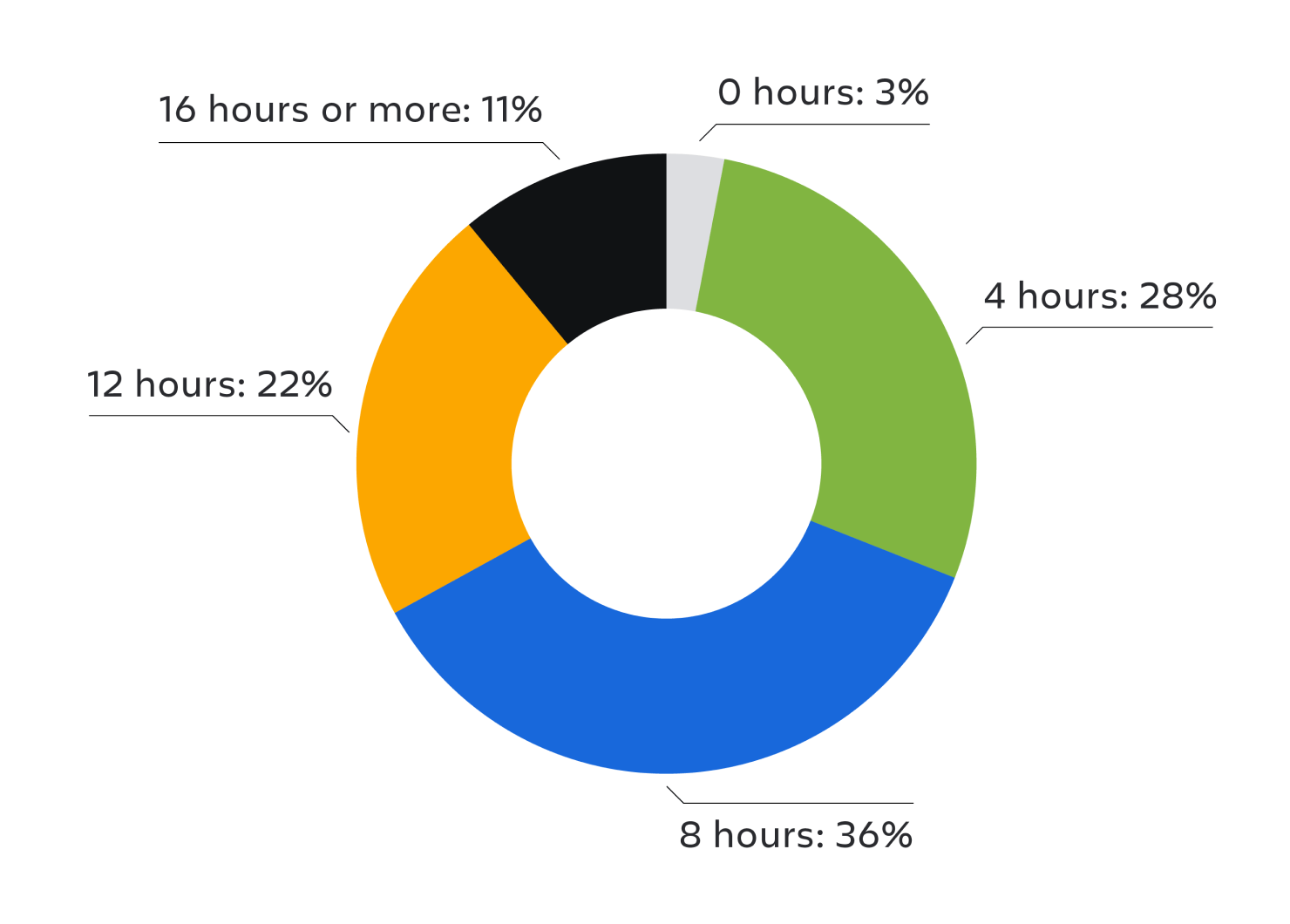
They aren’t wrong—there is a misalignment between developers and leaders on the issue. Most developers attribute their time loss to tech debt or insufficient documentation, while leaders point to understaffing, the expansion of the developer role, and the amount of tech knowledge needed. Not only does this create frustration among developers, but it also means leaders are likely to fix the wrong issue. The consequences are a larger gap in the issue and potentially wasted resources.
Additionally, most leaders admit the metrics they track are inefficient at measuring developer productivity, and most appear to conflate productivity and experience. This is unfortunate, given that developer experience is important to 63% of developers when considering whether to stay in their current jobs. Two out of three consider leaving their roles when they aren’t satisfied with their developer experience.
Investing in developer experience is a virtuous cycle
While productivity and experience are intertwined, they are also highly contextual—there isn’t one metric or a set of metrics that rules them all. At Atlassian, we’ve invested heavily in developer experience with the goal of putting developers at the center of the process. As a result, developer satisfaction has risen 25 percentage points over the past two years (from 49% to 74%).
How important developer experience is to developers:
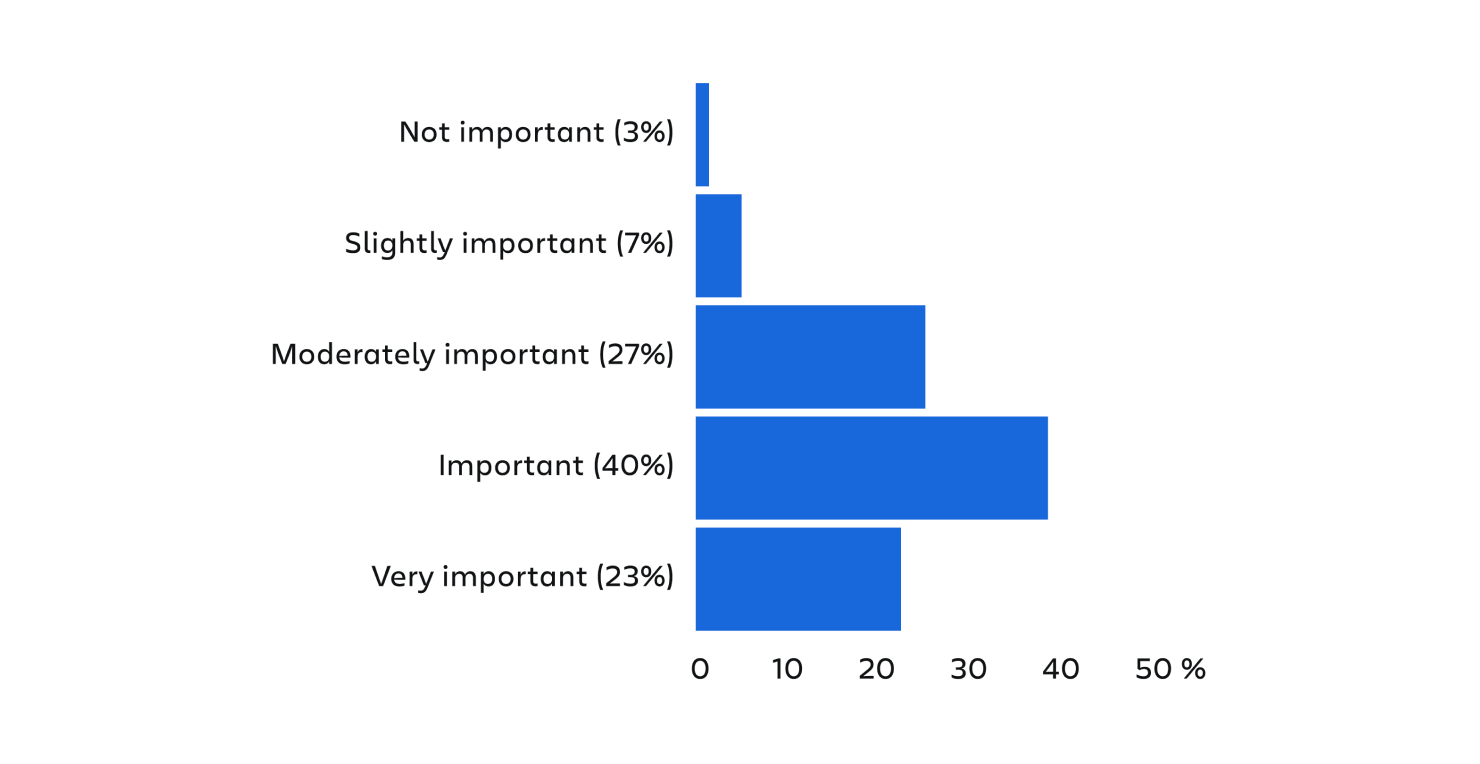
Focusing on developer joy can take your developer experience to the next level. Less time lost to obstacles and inefficiencies correlates with higher satisfaction with developer experience investment, meaning not only does productivity improve, but employee sentiment improves as well. The very first step for tracking, measuring, and improving developer experience is to speak with your developers. You can’t begin to help them unless you truly understand them.
What about AI?
Leaders believe AI is the most effective way to improve productivity and satisfaction, but currently, two out of three developers aren’t seeing significant productivity gains from using AI tools.
Top areas leaders believe will improve both developer productivity and satisfaction (multiple choice question):
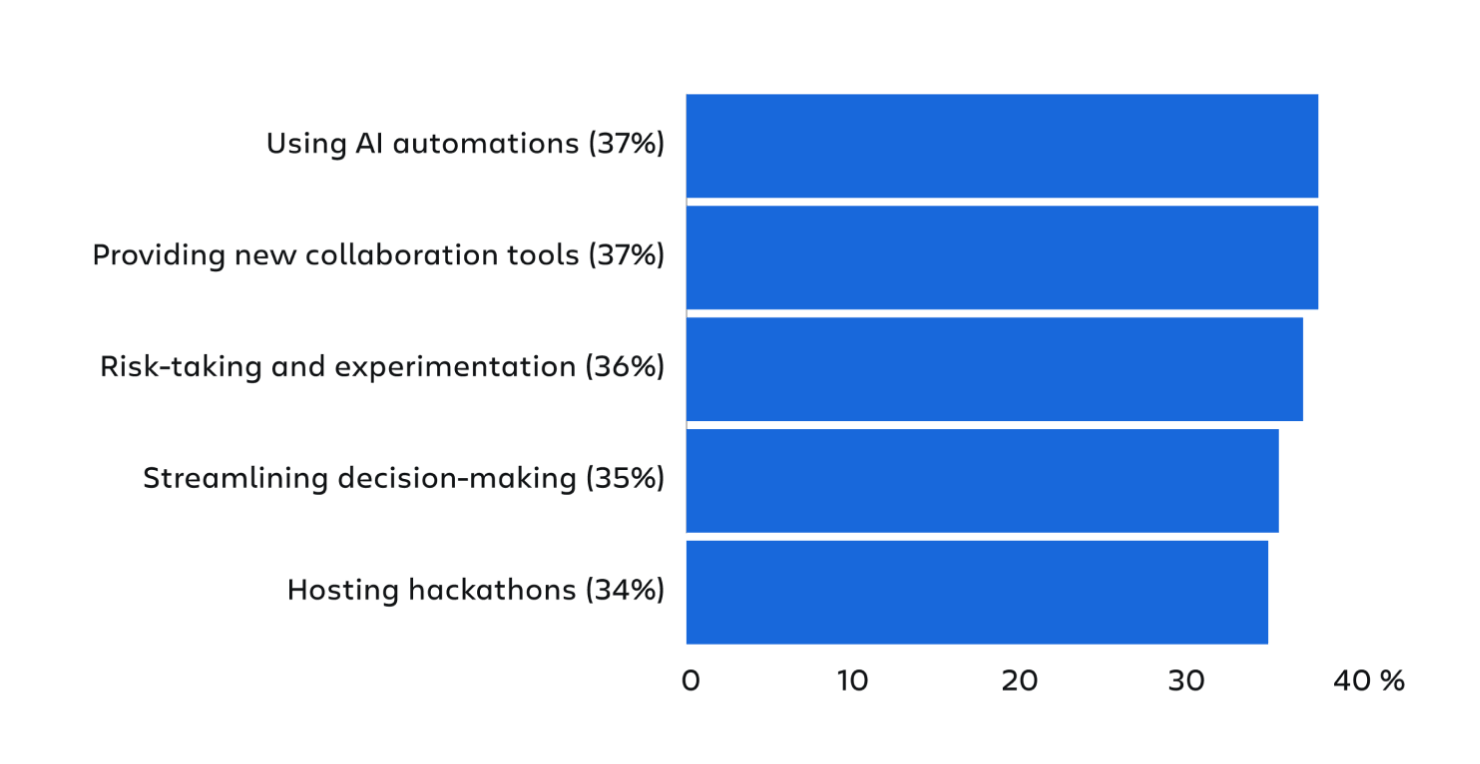
How much AI tools are improving developer productivity today:
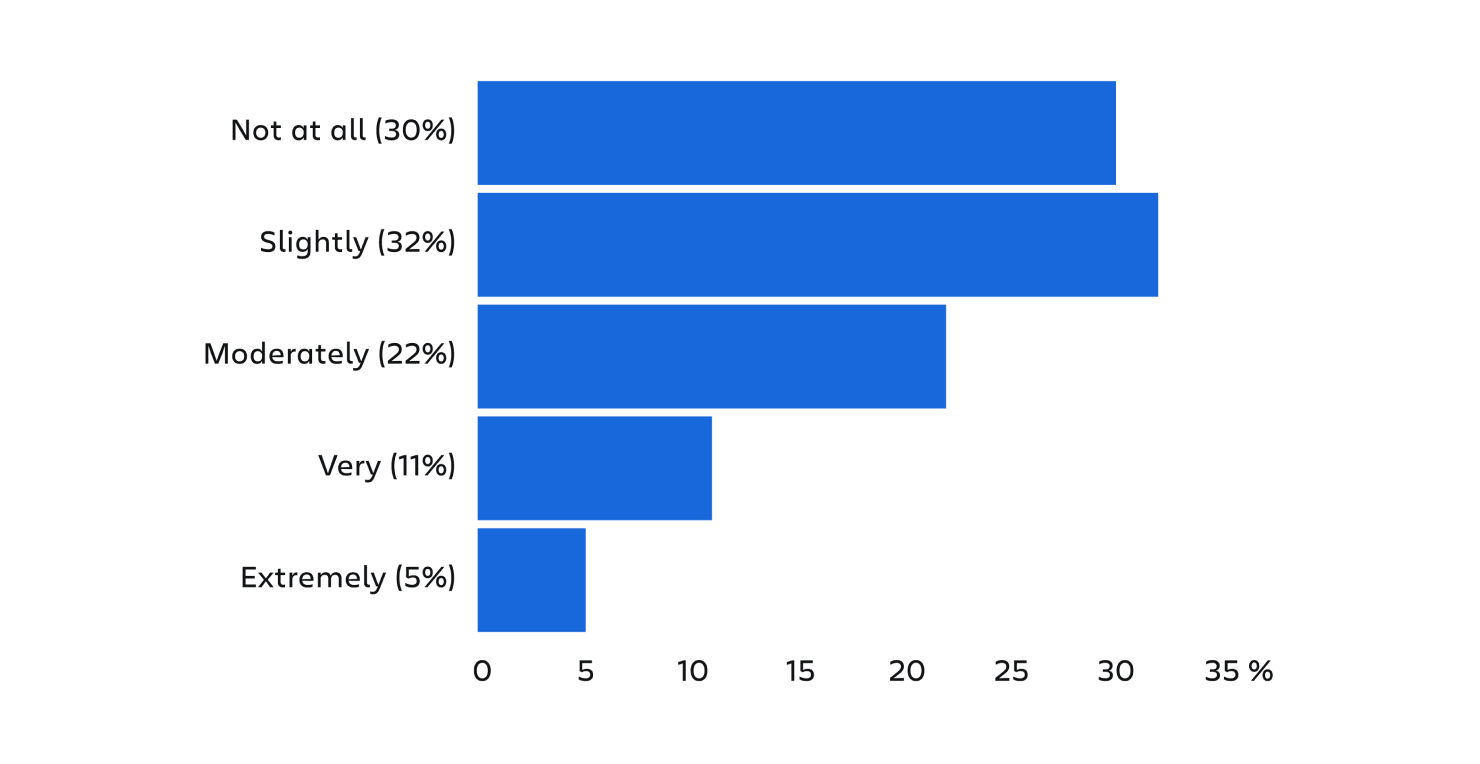
AI has the potential to enhance the engineering craft by addressing tech debt, reducing developer toil, helping plug documentation gaps, and reducing interruptions. However, to understand how AI can improve developer joy, leaders must go beyond code generation to understand the needs of each area separately and design effective solutions that match. It is critical that leaders ask developers about friction points and then implement tools that create consistent feedback loops, a manageable cognitive load, and the ability to get into a flow state.
Using the data to improve developer experience
It’s not all doom and gloom. This research allowed us to provide recommendations for leaders on measuring and improving productivity in a way that addresses developers’ concerns. And the best strategy to understand how to improve the developer experience is also the simplest.
Developers want to be productive; if you ask them what needs to be improved, they will definitely tell you. Trying to improve developer experience without asking developers what needs to be improved is the equivalent of searching the house for your phone while it’s in your hand. Alignment between engineers and their leaders on what needs to be improved is a critical step in prioritizing precious effort toward initiatives with the greatest impact.
With developers facing increased complexity and companies facing tighter budgets with more pressure to maximize productivity, improving developer experience is more important than ever. Improving alignment between developers and their leaders increases the likelihood of organizations meaningfully improving developer experience, productivity, and overall company success.
Progress toward improving developer experience is not linear—there will inevitability be events or incidents that impact sentiment. The important thing is that developers feel their challenges are understood and that they are enabled to do their best work. This is an ongoing process at Atlassian, too, but we will keep pressing forward and sharing what we learn through blogs, events, and reports like this.
